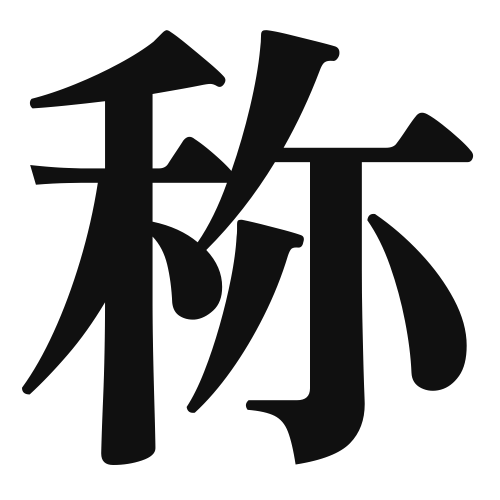1. Overview of Meaning
The kanji “称” (shou) generally means “to call,” “to name,” or “to praise.” It is often used in contexts where one refers to someone or something by a specific title or name.
2. Formation and Radical
Formation of the Kanji: The kanji “称” is a compound character (会意文字) that combines elements to convey its meaning. It consists of the radical “言” (word) and the phonetic component “承” (to receive), suggesting the act of receiving a name or title through words.
Radical: The radical of “称” is “言” (gen), which relates to speech or words, emphasizing its connection to naming and calling.
3. Examples of Usage
Common Words and Phrases: Some frequently used words that include “称” are:
- 称号 (shougou) – title
- 称賛 (shousan) – praise
Example Sentences in Daily Conversation:
- 彼はその称号を持っている。 (Kare wa sono shougou o motte iru.) – He holds that title.
- 彼女の業績は称賛に値する。 (Kanojo no gyouseki wa shousan ni atai suru.) – Her achievements deserve praise.
4. Synonyms and Antonyms
Similar Kanji: A kanji with a similar meaning is “名” (mei), which means “name.” However, “名” focuses more on the name itself, while “称” emphasizes the act of calling or naming.
Antonyms: An antonym for “称” could be “無名” (mumei), which means “nameless” or “unknown,” indicating the absence of a name or title.
5. Cultural and Historical Background
Connection to Japanese Culture: The concept of naming and titles is significant in Japanese culture, where honorifics and titles play a crucial role in social interactions.
Proverbs and Idioms: One relevant proverb is “名は体を表す” (Na wa karada o arawasu), which translates to “A name represents the body,” meaning that a person’s name reflects their character or essence.
